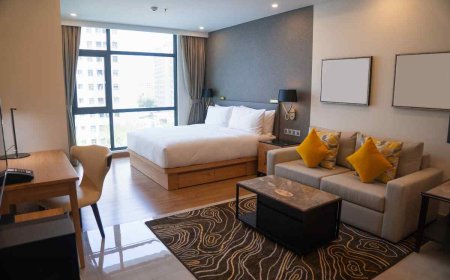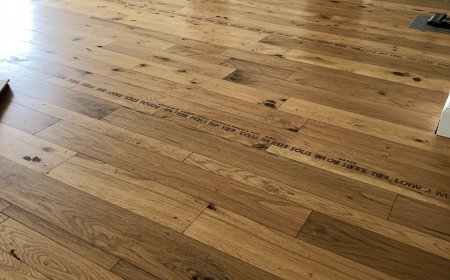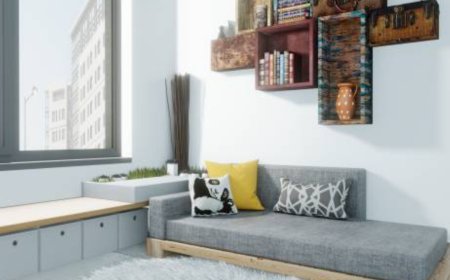Private Salon Suites vs Traditional Hair Salon Rentals What's Best for You
This guide delves deep into the benefits and challenges of both options, offering you a comprehensive analysis to aid your decision-making process.

Choosing the right environment to grow your business as a hair stylist or salon owner can significantly impact your career. The decision between a private salon suite and traditional hair salon rental is not just about the space you occupy, but also about the type of business you want to build and the lifestyle you wish to lead. This guide delves deep into the benefits and challenges of both options, offering you a comprehensive analysis to aid your decision-making process.
Understanding Private Salon Suites
Private salon suites are individual spaces within a larger building, allowing stylists to run their own businesses independently. These suites offer a unique experience that combines the benefits of owning your salon with the support of a shared facility. They cater to professionals who value autonomy and wish to create a distinct brand identity within the beauty industry.
Benefits of Salon Suites
-
Autonomy and Control: Private salon suites grant you full control over your work environment. You can set your own hours, choose your services, and create a personalized atmosphere that aligns with your brand. This level of control is ideal for those who wish to experiment with unique service offerings or wish to maintain a specific aesthetic that reflects their personal style. Moreover, having autonomy means you can adapt quickly to industry trends without needing approval from salon management.
-
Privacy for Clients: Clients often appreciate the privacy that comes with a salon suite. This setup can lead to a more personalized and intimate experience, promoting client loyalty and satisfaction. The one-on-one interaction in a secluded space can make clients feel valued and understood, which is particularly appealing in an industry where personal attention is paramount. This privacy can enhance client comfort and encourage open communication, leading to better service delivery.
-
Cost-Effective: While initially pricier than traditional rentals, salon suites can be more cost-effective in the long run. You have fewer overhead costs as utilities, maintenance, and amenities are often included in the rent. This financial predictability can help in budgeting and financial planning, offering peace of mind to stylists who prefer a fixed monthly expense. Additionally, the ability to set your pricing can offset higher rents, especially if you offer specialized services that command premium rates.
-
Brand Identity: Salon suites allow you to build and express your unique brand identity without the influence of a larger salon's image. This freedom can attract clients who resonate with your specific style and offerings. A distinct brand identity can be a powerful marketing tool, setting you apart in a competitive market and allowing you to target niche audiences. Personal branding in a salon suite can also extend to the interior design and ambiance, further reinforcing your brand message.
-
Community Support: Many salon suite facilities offer a supportive community of beauty professionals. This network can provide valuable advice, collaboration opportunities, and a sense of camaraderie. Being part of a community can lead to partnerships and collaborations that enhance your service offerings and clientele. The shared knowledge and experiences within such communities can be instrumental in overcoming challenges and celebrating successes.
Challenges of Salon Suites
-
Higher Rent Costs: Renting a salon suite might seem expensive upfront, especially in prime locations. However, the inclusion of utilities and other benefits can offset these costs over time. It's essential to weigh the initial investment against potential revenue increases due to the personalized service and freedom a suite offers. Balancing these financial aspects requires careful planning and possibly, financial advice.
-
Limited Space: Salon suites are typically smaller than traditional salon rentals. This limitation may affect the range of services you can offer or the number of clients you can serve simultaneously. However, a smaller space can also mean less maintenance and a more focused service offering, which some clients may prefer. Creative use of space and efficient scheduling can help mitigate the impact of space constraints.
-
Independent Management: While autonomy is a benefit, it also means you are solely responsible for managing your business. This includes marketing, booking, and maintaining supplies. The entrepreneurial aspect of running a salon suite can be daunting, requiring skills in areas beyond hairstyling, such as financial management and customer service. However, mastering these skills can significantly enhance your business acumen and professional growth.
Exploring Traditional Hair Salon Rentals
Traditional hair salon rentals involve leasing a chair or space in a larger, established salon. This option offers a more communal work environment and can be a stepping stone for those new to the industry. It provides an opportunity to learn the ropes while benefiting from the established systems and clientele of a larger salon.
Benefits of Traditional Salon Rentals
-
Lower Initial Costs: Renting a chair in a traditional salon generally requires less upfront investment compared to a private suite. This makes it an accessible option for stylists starting out or testing the waters. The lower financial risk allows new stylists to build confidence and experience without the pressure of high overhead costs. Over time, this can lead to a more stable financial foundation and the ability to expand service offerings.
-
Shared Resources: In a traditional salon, resources such as reception services, marketing efforts, and equipment may be shared among stylists, reducing your personal expenses. This shared model can lead to cost savings and operational efficiency, allowing you to focus more on honing your craft. Access to high-quality equipment and professional-grade products can enhance service delivery without the need for individual investment.
-
Community and Networking: Working alongside other stylists provides ample networking opportunities. You can learn from peers, share clients, and benefit from a ready-made community. This environment fosters collaboration and learning, which can be invaluable for professional development. The collective knowledge within a traditional salon can accelerate skill development and inspire creativity.
-
Established Client Base: Traditional salons often have an established clientele, which can help you build your customer base more quickly than starting from scratch in a private suite. The existing reputation and marketing efforts of the salon can work in your favor, providing a steady stream of clients. This can lead to immediate income and the opportunity to build long-term relationships with clients.
Challenges of Traditional Salon Rentals
-
Less Control: Unlike salon suites, traditional rentals offer less control over your work environment. You must adhere to the salon's rules, hours, and branding, which may limit your creative freedom. This limitation can be frustrating for stylists with a strong vision for their brand or specific client service style. Adapting to a salon's established culture and guidelines requires flexibility and patience.
-
Shared Space: Sharing a space means sharing resources and equipment, which can sometimes lead to scheduling conflicts or competition for clients. The need to coordinate with other stylists can impact your ability to offer flexible scheduling, potentially leading to client dissatisfaction. However, effective communication and collaboration within the salon team can help mitigate these challenges.
-
Limited Brand Development: Building your personal brand may be more challenging in a traditional salon setting due to the overarching salon identity and marketing strategies. Your ability to express individuality may be constrained, impacting your ability to attract clients who identify with your unique style. However, working within these constraints can also teach valuable lessons in adaptability and teamwork.
Making the Decision: Which is Right for You?
When deciding between a private salon suite and a traditional salon rental, consider the following factors:
-
Budget: Evaluate your financial situation and determine how much you are willing to invest initially and monthly. Consider the potential return on investment and how each option aligns with your financial goals. It's important to factor in all costs, including hidden ones, to avoid surprises later on.
-
Career Goals: Consider your long-term goals. Are you looking to establish a personal brand, or do you prefer being part of an established team? Your career aspirations can greatly influence your choice, impacting not only your professional growth but also your personal satisfaction. Reflect on where you see yourself in the next five to ten years and how each option aligns with that vision.
-
Client Experience: Think about the experience you want to offer your clients. Would they prefer a private, personalized service, or are they comfortable in a bustling salon environment? Understanding your target clientele's preferences can guide your decision, as client satisfaction is pivotal to success in the beauty industry. Conducting informal surveys or client discussions can provide insights into their preferences.
-
Business Management: Assess your readiness to manage a business independently. Do you have the skills and time to handle marketing, scheduling, and client management on your own? The ability to effectively manage these aspects can be the difference between a thriving business and a struggling one. Consider seeking mentorship or taking courses to strengthen any areas where you feel less confident.
Conclusion
Both private salon suites for rent and traditional hair salon rentals offer unique advantages and challenges. By assessing your personal and professional needs, you can choose the option that aligns best with your career aspirations and lifestyle. Each path offers distinct opportunities for growth and development, depending on how you leverage them.
Remember, this decision is a significant step in your career. Take your time to evaluate your options, seek advice from fellow professionals, and choose the path that will best support your growth and success in the beauty industry. Your choice should reflect not only your current circumstances but also your future ambitions, ensuring you are well-positioned for long-term success and fulfillment.






































